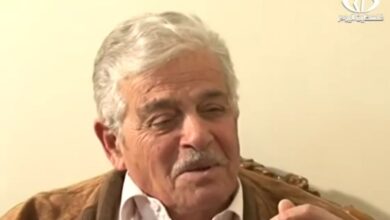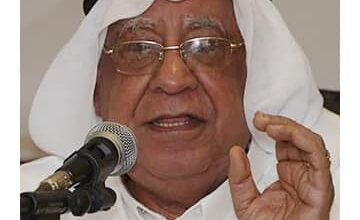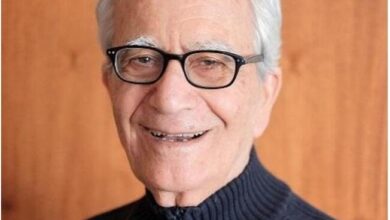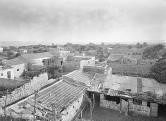
- MY ROOTS ARE DEEP IN PALESTINE
Ibrahim Ebeid
CHAPTER 1
ORIGIN AND ROOTS
Our predecessors descended from the Sweirakiah tribe native to the Egyptian Sinai and the Levant. The tribe had maintained its fame, its Arab character and Christian faith.
In the 12th century CE, it joined Saladin in the wars against the Crusaders. It played an important role with other Christian tribes in defeating the Crusaders and liberating Jerusalem and other parts of Palestine.
A number of men of this tribe were physicians, specialized in various types of treatments. Their fame was widespread in the Levant and in Arabia. Among those famous men was Suleiman al-Masri al-Sweiraki who was selected by Saladin al-Ayoubi as one of his physicians. He was also entrusted to treat some of his elite bodyguards. When Richard the Lionhearted was wounded and was suffering from fever, Saladin sent Suleiman to treat him.
Saladin bestowed the title of Mualem (Master of trade in Arabic), a title used by physicians in those days, upon Suleiman because of his performance and accomplishment. Suleiman was able to win the trust of Saladin for his dedication and loyalty. In addition to his skills as a physician, Suleiman had a wide knowledge of psychology that he employed in combat tactics and planning that helped defeat the Crusaders. Saladin awarded him with a piece of land in Darya, near Damascus. It was fertile land with vast amounts of water. Shortly after Suleiman took ownership of the land, a dispute took place between his family and another landowner that resulted in the death of the neighbor’s son. This act prompted Saladin to order the physician, who became known as Suleiman al-Mualem, and his family to move to another piece of land in Caesarea, near Haifa. The move was intended to avoid any more disputes and bloodshed for revenge.

-
When Jerusalem was liberated, the Sweiraki tribe within the Christian Arab Brigade was the first to enter Jerusalem under the command of Issa Ibn al-Awam, an honor bestowed upon them by Saladin.
After the death of Saladin in 1193, the al-Mualem family sold its land in Caesarea and moved to Ramleh, a famous city in the center of Palestine. From that time until the beginning of the 18th century, with the estimated birth of our ancestor Abdo, the son of Nasri al-Mualim, the history of the family was very difficult to follow. Our predecessors did not keep any records, so the little we knew was related to us by word of mouth.
Caesarea occupied in 1948. Its Arab people were expelled and a new town was built for the Zionists .Only old historic ruins were kept for tourism.
Abdo Nasri al-Mualem al-Sweiraki
It is easier to start relating the history of the family from our ancestor Abdo. Information about him and his descendants was known by those who preceded us from the family and how it was related to their descendants, generation after generation by the word of mouth.
Abdo and his sons, Jiryes and Khalil, were builders and well known in Palestine and the Levant. Their fame reached Ahmed Pasha al-Jazzar, the Ottoman ruler of Akka, (Acre), and Galilee.
When Napoleon Bonaparte was preparing to invade Egypt and the East, al-Jazzar called Abdo and his sons to come to Akka and contracted them to repair and fortify the wall of the city and to add a new wing to the castle. Jiryes earned the respect of al-Jazzar for his skills and ability and consequently, he gained the title of Master of the trade.
The project was completed ahead of time and the forces of al-Jazzar withstood the siege of Akka by the French under Bonaparte (March 21-May 20, 1799). Napoleon failed to conquer the city and he retreated. Frustrated, Napoleon threw his hat over the wall and said, “If I cannot enter you then my hat will.” History could have changed greatly if not for the contribution that our ancestors achieved in protecting the city from occupation and destruction.
According to what I heard from Uncle Saadeh Abdallah Saadeh (the grandson of Ebeid) and his nephew, Dr. Wajih Ibrahim Saadeh, in addition to building the wall, Abdo, with his sons and family, took part in defending the city of Akka.
Ahmed al-Jazzar was a brutal ruler who earned the name of al-Jazzar, (“the butcher” in Arabic) and, for an unknown reason, he wanted to punish Jiryes and cut both hands from the wrist so he could not use them
anymore to build similar fortifications.When Jiryes learned about the threat, he became known as Jiryes el Farr, meaning “Jiryes the
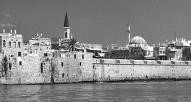
-
runaway,” and the family name became known as such. After his escape, his family, his father and his brother Khalil, stayed in Akka for a short time. Fearing reprisal or harassment they left the city to Salt in the east of Jordan at the beginning of the 19th century. After the death of Ahmed al-Jazzar in 1804, Jiryes joined his family in the city of Salt and later on he, along with his wife and children, resettled in the city of Ramleh.
Devastating Stories of Killing and Assassination of Ebeid’s Cousins
- Ghali Ibn* Jiryes Ibn Ibrahim Ibn Jiryes al-Mualem el-Farr, a first cousin of our ancestor Ebeid, was single and working for the State Treasury collecting taxes from districts around Jaffa and transferring them to the main office of the Department of Treasury in Jerusalem. One day, he traveled from Jaffa to Jerusalem. It was getting dark, so he decided to spend the night in a safe place before resuming the trip early the following morning. He chose the Roman Catholic monastery run by the Jesuit Order. However, it was not a safe place at all as unanticipated tragedy awaited him. The priests whom he trusted turned out to be monsters; wolves disguised in lambskin. They knew who he was and what he was carrying, so they plotted to kill the man and share the spoils among themselves. They offered him food and drink. After consuming the drink, he felt something strange was happening to his system. He knew he had been poisoned and he stumbled into the street, shouting, “Oh Muslims and Christians; the people of the monastery gave me poison in the drink, please inform the government.”
As soon as the authority in Ramleh received the news, a company of policemen was dispatched to the monastery. They found Ghali dead, and then they searched the place thoroughly and found the stolen money.
Ten were arrested; among them eight foreign priests. They admitted committing the crime and were sentenced to death.
Ghali’s mother was taken care of by the government. She received an
amount of gold money as a monthly salary, for life, as compensation for her son’s services and dedication to the country.
*Ibn means son in Arabic
- Iskander was a young man, single and talented. He was accepted at the Military Academy of the University of Istanbul and graduated with high honors. He was expected to have a bright future in a military career, but his expectation did not materialize. Not long after his graduation, the Turks plotted to get rid of him for fear that the young Arab man might achieve a high and influential position. They killed him and dumped his body in the Dardanelle. This abominable act took place during the reign of Sultan Abdul Hamid, between the 19th and 20th centuries. Getting rid of Arabs of high caliber was a common practice by the Ottoman Turks. Brutal and savage mass executions in many parts of the Arab homeland took place.
Mahfouz, the brother of Iskander, was a high-ranking official in the Ottoman State. He was the customs director general in Bilad al-Sham, in the Levant, or Greater Syria, that comprised of modern Syria, Palestine, Jordan and Lebanon. In today’s hierarchy, his rank equaled that of a deputy minister of finance. Mahfouz knew all the details of the killing of his brother, Iskander, and he knew who committed the horrible crime. The Turks were afraid to be exposed and they killed him as well and to cover up their notorious undertaking, they made it look like an act of suicide. They shot him with the pistol issued to him by the government, put a bottle of wine in front of him and issued a statement that he, Mahfouz, committed suicide in grief for his brother.


